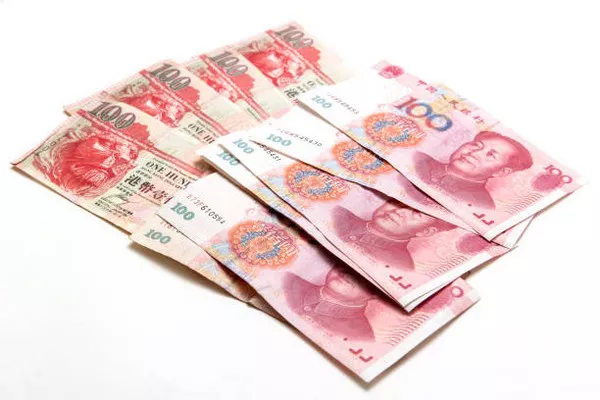In the realm of global economics, currency strength is a vital indicator of a nation’s economic health and stability. A strong currency not only reflects confidence in a country’s economy but also impacts various aspects of domestic and international trade, investment, and purchasing power. In this article, we delve into the concept of currency strength, examining what constitutes the strongest currencies and the factors influencing their strength. Specifically, we focus on China, one of the world’s largest economies, and analyze its currency’s strength amidst the complexities of inflation, government policies, and global economic dynamics.
Current Inflation Rate in China
As of the latest data available, China’s inflation rate stands at 2.5% as reported by the National Bureau of Statistics of China. This figure represents a moderate increase from the previous period, indicating a stable but controlled level of inflation within the country.
Historical Inflation Data
To provide context to the current inflation rate, it’s essential to examine historical data. Over the past decade, China has experienced fluctuations in inflation rates, with periods of both high and low inflation. For instance, in the aftermath of the global financial crisis of 2008, China witnessed a surge in inflation, peaking at over 6% in 2011. However, in subsequent years, the government implemented measures to curb inflationary pressures, leading to a decline in the inflation rate.
Factors Influencing Inflation
Several factors contribute to China’s current inflation rate, including government policies, global economic conditions, and domestic events. One significant factor is the government’s monetary policy, which aims to maintain price stability while supporting economic growth. Additionally, fluctuations in commodity prices, particularly those of food and energy, influence inflation levels. Moreover, domestic events such as natural disasters or political instability can disrupt supply chains and affect prices, thereby impacting inflation.
Impact on Economy and Consumers
The current inflation rate has significant implications for both the overall economy and consumers. A moderate level of inflation is generally conducive to economic growth, as it encourages spending and investment. However, high inflation can erode purchasing power and lead to uncertainty, negatively affecting consumer confidence and investment decisions. Moreover, inflationary pressures may prompt the central bank to raise interest rates, which can impact borrowing costs and investment returns.
Regional Variations
While China is a vast and diverse country, inflation rates may vary across different regions due to factors such as urbanization, industrialization, and regional economic disparities. Generally, coastal regions with higher levels of economic development may experience higher inflation rates compared to inland provinces. However, the government’s efforts to promote balanced regional development and inclusive growth aim to mitigate such disparities.
Forecasts and Predictions
Expert analyses and forecasts suggest that China’s inflation rate is likely to remain relatively stable in the short to medium term. However, external factors such as fluctuations in global commodity prices and geopolitical tensions could pose risks to inflation dynamics. Nonetheless, the government’s proactive monetary and fiscal policies are expected to help maintain price stability and support economic growth.
Comparison with Global Inflation Rates
In comparison with global inflation rates, China’s inflation remains moderate, reflecting its position as a major driver of global economic growth. While some developed economies grapple with persistently low inflation or deflationary pressures, emerging economies like China face the challenge of managing inflation amid rapid economic expansion. Nevertheless, China’s inflation rate compares favorably with global averages, indicating a relatively stable economic environment.
Implications for Investors and Businesses
For investors and businesses operating in or with China, the inflation rate carries significant implications. A stable inflation environment provides a conducive backdrop for investment and business expansion, fostering confidence and long-term planning. However, businesses must monitor inflationary trends and adjust pricing strategies accordingly to maintain profitability amid changing cost dynamics. Additionally, investors should consider inflation when making investment decisions, as it can impact asset values and real returns.
Government Response
In response to inflationary pressures, the Chinese government has implemented various measures to manage inflation effectively. These measures include adjusting monetary policy tools such as interest rates and reserve requirements, as well as implementing targeted fiscal policies to address supply-side constraints and stabilize prices. Moreover, regulatory measures to enhance market competition and combat monopolistic practices aim to mitigate inflationary pressures in key sectors.
Advice for Consumers
In light of the current inflation rate, consumers can take practical steps to manage their finances effectively. These include budgeting wisely, prioritizing essential expenses, and seeking opportunities to save or invest prudently. Moreover, consumers can leverage digital financial tools and platforms to compare prices, seek discounts, and optimize their purchasing decisions. Additionally, maintaining a diversified portfolio of assets can help hedge against inflation risks and preserve long-term purchasing power.
In conclusion
Understanding the dynamics of currency strength and inflation is crucial for navigating the complexities of the global economy. In the case of China, a balanced approach to managing inflation is essential to sustaining economic growth, promoting stability, and enhancing prosperity for its citizens and stakeholders alike. By analyzing the factors influencing inflation, assessing its impact on various stakeholders, and exploring potential strategies for adaptation, individuals and organizations can effectively navigate the evolving economic landscape.


